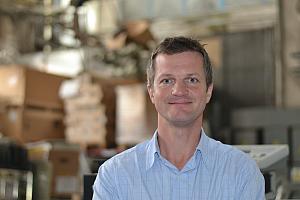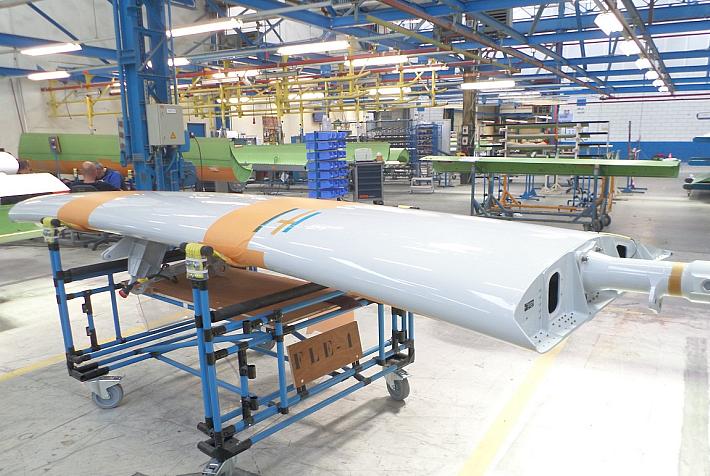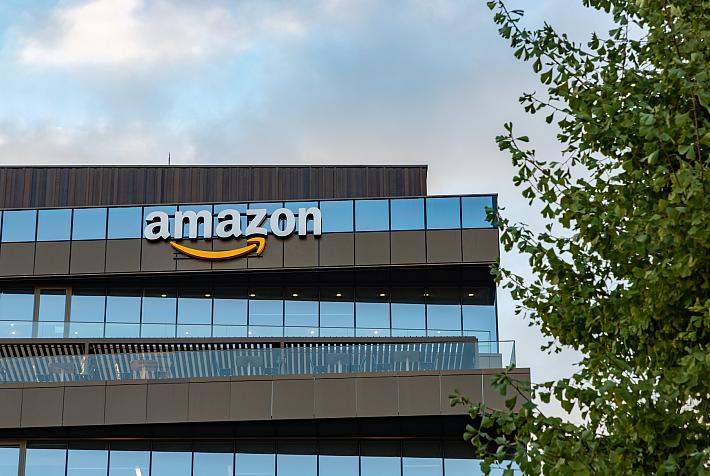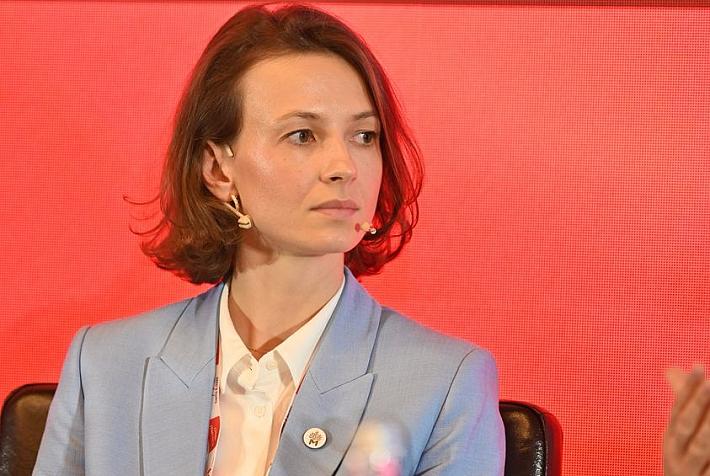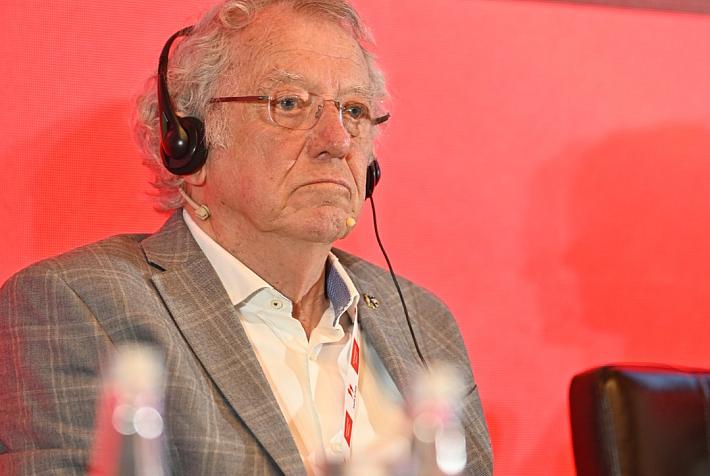Improving the lives of vulnerable children in Romania: a Swiss organization's solutions
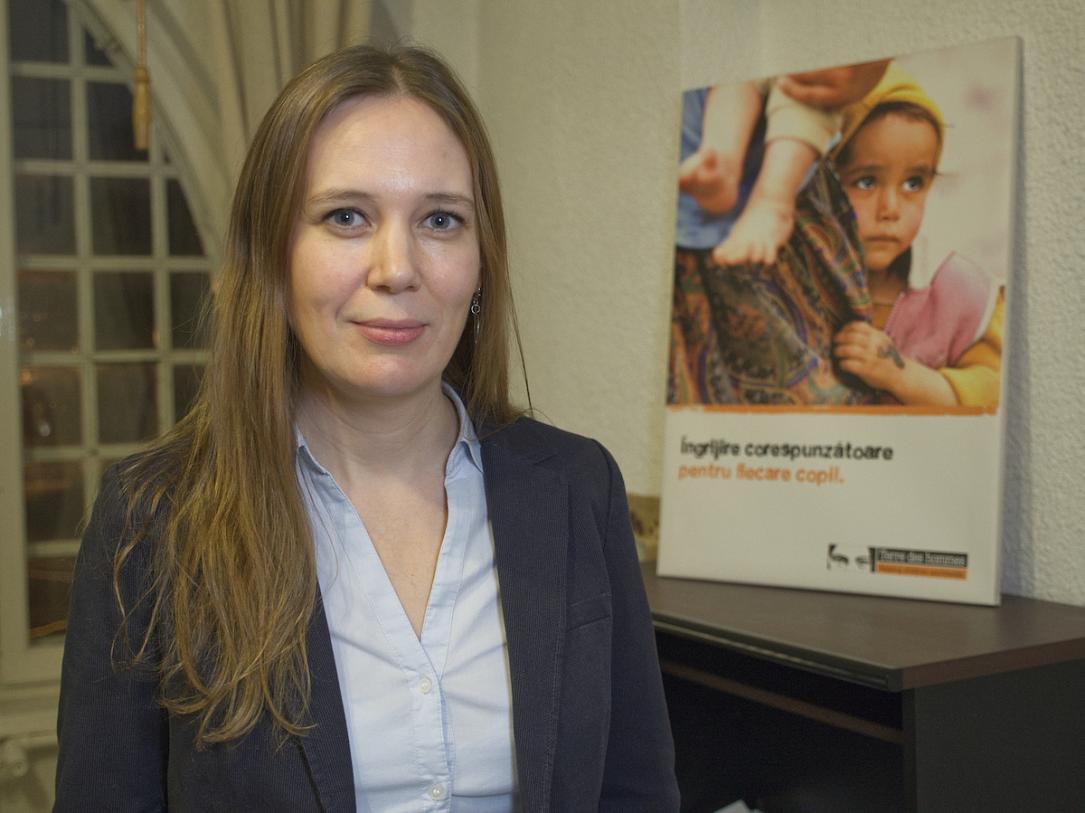
The Terre des hommes Foundation has been working in Romania for almost 30 years, on projects aiming to protect the rights of children and improve the lives of the most vulnerable of them.
We've talked to Kirsten Theuns, Head of Eastern Europe Delegation of Terre des hommes Foundation, about the organization's work and projects in Romania, children's problems and the solutions for them, as well as about how the coronavirus pandemic has affected the foundation's activity this year.
Poverty, various forms of domestic and school violence, school dropout, and even discrimination are just some of the challenges the children in Romania have been facing for many years. Worrying data has also been revealed by the "Child Rights Now" report released last year by Terre des hommes Romania and three other major international NGOs working in the country: almost one-third of children in Romania live below the national poverty line, and 3% of children go to bed hungry and don't have enough food. Besides, one out of two parents believes corporal punishment is used for the good of the child.
Terre des Hommes Romania, the local delegation of the leading Swiss organization for children's aid Terre des Hommes, has been actively involved since 1992 in protecting the rights of children in Romania, as well as in helping the most vulnerable of them through various projects. Only last year, the organization helped 45 communities to improve their education, social, and health services for children.
The Terre des Hommes' projects in Romania cover different needs of children, the organization currently running 11 projects across the country.
This year, for example, Terre des Hommes will finalize SHINE, a project implemented in Bacau county (one of the poorest regions in Romania) through which the organization worked to improve the lives of disadvantaged children by investing in education, health, and social services and infrastructure. Within the same project, specialists have been using original games to help secondary school pupils develop their abilities to communicate and their trust. The Movement, Games and Sports methodology was created initially by Terre des hommes for the children in war zones, such as Iran, but it also proved its utility in Romania. The organization said that, at the end of the project, some children became themselves informal "play instructors" for their friends, others began to demand their rights, and all became aware of their importance in society.
Please tell us briefly what Terre des hommes is and what it does
We are the Romanian delegation of the leading Swiss organization for children's aid, Terre des hommes and we have been active in Romania for the past 28 years, protecting the rights of children and intervening through our projects. We are specialized in child protection, in projects for children and youth affected by migration, and children in contact with the law.
By the way our team is made mostly of ladies, in spite of what our name may suggest (it comes from a famous book by Antoine de Saint-Exupéry and refers to humankind in general).
Our approach is on the long term, covering different needs of children, and also involving them in the process. For example, in a project we can begin by asking the children what they would need, we then make investments in their communities and/or schools, but also do nonformal education activities with the children, in order to help them build confidence, know their rights and even have fun and forget the difficulties they live on a daily basis. On the other hand, we will train social professionals and parents and teachers to better work and understand the needs of the children.
Tell us a bit about the organization’s work in Romania. How big is the local team?
We are 18 people in offices in Bucharest, Craiova and Bacau, but through our collaborators, we have field work at national level. Last year we were able to help 45 communities to improve their education, social, and health services for children. Our projects are always implemented simultaneously so they are in different stages. For example this year we finalize SHINE, in Bacau, where we improved on many levels the lives of 11,000 children going to school in the rural area. We also have projects for youth in detention centers and for integrating migrant children, because when we say ”every child” (like in our slogan ”Every child has the right to a childhood”) we really mean ”every child.”
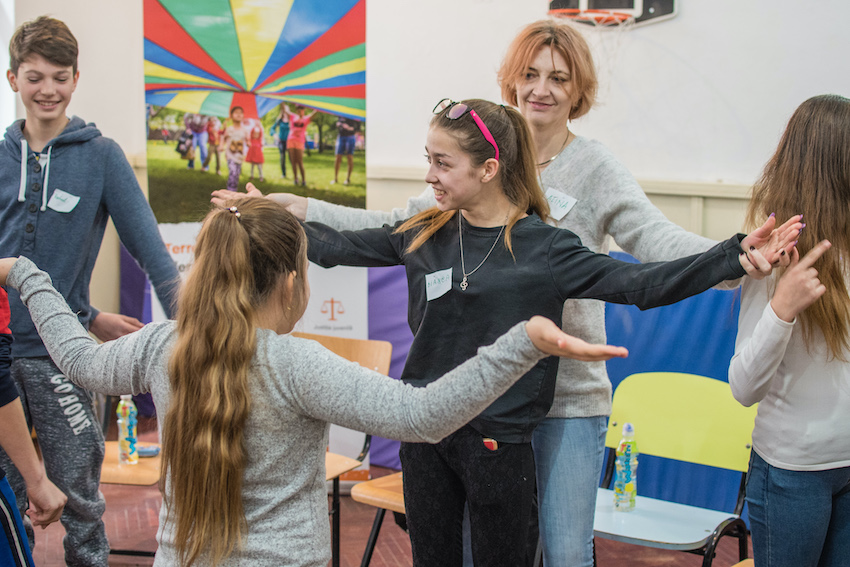
In 2019 we also launched the first project initiated by an NGO in Romania with the goal of perfecting the protection of children in sports environment, so we will work with the sports federations and prevent all harmful situations. And that is only naming a few of our most impactful projects. We believe in building the resilience of children and youth, ensuring their participation in decision-making and each of our projects includes and applies these principles.
How many children have benefited from the Terre des hommes services in Romania in 2019 and what was your budget last year? How do you finance your work in Romania?
In 2019, we have touched the lives of over 16,500 children from various communities and geographical areas in Romania, as I mentioned there were 45 communities. Figures are important, of course, but testimonials are really heartwarming as well. For example a 12 year old girl who told our colleague that nobody had asked her before how she felt…Or a boy happy to see his colleagues come to school in a school minibus, not by foot (they were living 10 km away).
Our strategic projects are financed by major institutional donors (European Commission), private donors or other NGOs, but we are also beginning to raise money in Romania and since May 2020 we are on the Rohelp platform, where you can donate directly by card in order to help us buy hygiene products and other materials for vulnerable children that are affected by the COVID-19 pandemic.
This is also because not all the needs of the organization are covered (for lobby activities or research or operational costs staff, administrative costs). Sometimes we notice that beneficiaries have needs that donors cannot cover, and we would need to explore these needs before creating a way to help them (a new project), but that requires a budget. Our budget for 2020 is over CHF 1,500,000, which seems a lot, but keep in mind that this is spread in 11 simultaneous projects.
What are your plans for this year? Has the coronavirus crisis impacted Terre des hommes’ activity in Romania?
Currently we have 11 projects running and we have been adapting them as much as possible to the new conditions imposed upon us by COVID-19. With regard to desk work, team meetings, webinars, consultations with children and different professionals, development of methodologies and tools, we continued our work remotely. According to the national recommendations, the only feasible option for us was teleworking and staff was ensured flexibility. We contacted our beneficiaries, partners and donors to communicate about our field constraints, we shared up-to-date recommendations for the prevention of COVID-19 and information about anticipated programmatic and logistical/administrative implications.
We had to cancel events, but we also moved some of them online. We have moved activities such as trainings and meetings online, and started conducting needs assessments to measure the effects of COVID-19 on vulnerable families in order to adjust and develop new initiatives. We ordered basic protective equipment for our collaborators and for some of the children benefitting from our interventions.
We clearly see that there are even more, and more complex, needs and challenges facing children and young people in Romania today. Overall, there is increase in poverty, with parents losing jobs, need for food etc., children are more exposed to domestic violence, many children have limited access to (quality) education, social services provided are limited etc., and we are working as much as possible to address these needs.
We positioned ourselves, in different partnerships, on topics like child protection (asking child protection services to systematically assess and respond to risks of domestic violence by conducting ongoing monitoring for at-risk families and ensuring contingency planning for placements outside the home if the child is no longer safe at home), child participation (seeking children’s and young people’s lived experiences, views and hopes in order to advocate for changes), support for the establishment of home-based online learning and recreational activities, fight against discrimination of Roma, the release of children deprived of liberty and the implementation of non-custodial measures/alternatives to detention to ensure children’s safe reintegration in their families and communities, improvement of psycho-social wellbeing of children and youth affected by migration and ensuring that the necessary health and hygiene measures are in place. We have done, supported or advocated for all these in a way that complements and reinforces our interventions and priorities for this year.
Terre des hommes has been active in Romania since 1992. How has the country changed since then, in terms of children’s rights and the difficulties they face? Did things get better for the disadvantaged and vulnerable children in Romania?
The national social context remained the same in terms of poverty and social exclusion, with almost half of the Romanian children living the effects of these two major constraints. Resources allocated to education, health and social protection are scarce and are deepening the vulnerabilities of children from disadvantaged areas.
The most pressing and worrying phenomena, like those of children left behind by their parents who are migrating to work abroad, various forms of domestic and school violence, bullying, child trafficking and sexual abuse, discrimination of Roma and school drop-out, children in contact with the law, require the development of community integrated services.
All these aspects are very well underlined in the studies and analyses conducted by Tdh, by World Bank and by our partners like World Vision, Save the Children, SOS Children’s Villages, the Federation for Non-governmental organizations for Child’s Rights (FONPC) throughout these years.
What is encouraging is the fact that in the recent years, Romania registered an increased interest in child and family’s policies. Therefore, in the field of child protection, there is the revision of the minimum quality standards for all types of services in order to be adapted to the specific needs of every child. What is notable is that strategies are in place for the most relevant sectors (child protection, social inclusion, etc.) and we have closely worked together with the authorities and other actors to create these. Now the main issue is the actual enforcement and implementation of these laws and strategies as the budget allocated to their implementation is insufficient. We see there is some progress made towards the implementation of the National Strategy for the Promotion and Protection of Child’s Rights, there is a Children’s Ombudsman.
Another important aspect is that Romania is one of the 30 countries worldwide who took on the role of pathfinder country in the fight against violence, committed to providing comprehensive, coordinated and multi-sectoral services for preventing and responding to violence.
Romania has one of the highest levels of children at risk of poverty, especially in rural areas and more resources (both human resources such as social workers as well as budget – at local level) are needed, plus more collaboration (multi-disciplinary work) is needed between different stakeholders (both different authority bodies as well as NGOs and service providers).
We would still like to see an increase of the quality of social services at community level by ensuring qualified personnel in every public service of social assistance, we are strongly encouraging the existence of integrated intervention community teams, for prevention and reintegration support, child friendly practices for the interaction between minors and justice.
What are the biggest problems faced by children in Romania? What should the local and central authorities do, in your opinion, to improve this situation?
A lot of us may not realize this, but most of the children in Romania have some kind of difficulty in their every day life: if it is not access to food or decent living conditions, it could be bullying at school or violence they experience or witness at home or the lack of a parent or both. And that applies to urban and rural areas. The worst is of course when many of these are combined in the life of a child and it clearly affects his/her future. It is very hard to say there are bigger problems than others, who can decide that infant mortality is not as important as hunger...
According to the ”Child Rights Now” report we launched last year together with 3 other major international NGOs in Romania, almost one-third of the children in Romania live below the national poverty line and 3 % of children in Romania going to bed hungry, 7 out of 1000 newborns die at birth, and 1 out of 2 parents believe that corporal punishment is used for the good of the child. The report is an analysis of how children's rights have been respected in the past 30 years in Romania, and identifies seven serious and urgent problems that children face in this country, I recommend it to anyone.
How can people or companies help Terre des hommes?
Other than the classical ways of helping (direct donations or 3,5 % of the tax revenue), there are fun ways people can help: the Bucharest Swimathon is held in June (”Swim at home” this year), so anyone can be our supporter in a fun way.
We would like to reach out to companies too, who could offer us services such as audit, design for promotional materials or sponsoring projects. But we can help as well, with our training experience for any company that may be interested: our special Movement, Game and Sports methodology develops soft skills and team work abilities for adults too.
The goal is to bring more support to vulnerable children in Romania and we all have to be creative in doing so. Go to our website and our Facebook page and find all the different ways in which our friends can help children. Also we are publishing regularly news and articles about the children we meet in our projects and the childhub.org platform is the place to go if you want to read them - like having a ”reality check” and realizing how much is still to be done.
Irina Marica, irina.marica@romania-insider.com
(Photos: Terre des hommes)







